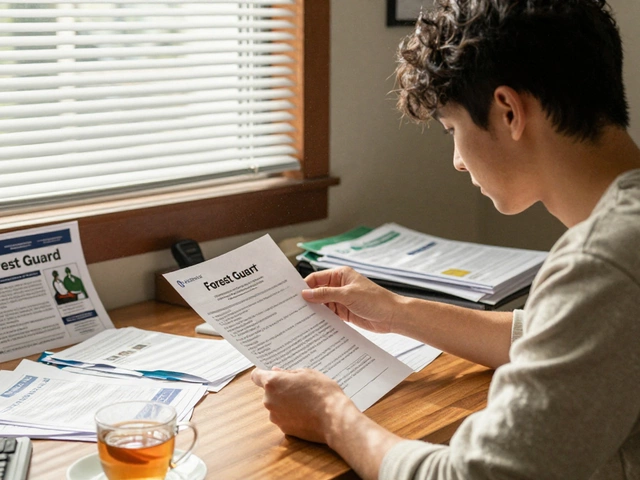Jun
12

- by Dhruv Ainsley
- 0 Comments
The hardest part isn't grammar or vocabulary—it's just opening your mouth and giving it a shot. Most beginners freeze up because they think their English isn’t 'good enough,' or they're worried about making mistakes. The truth? Even native speakers mess up all the time. In fact, studies from Cambridge showed that people who focus less on mistakes actually improve faster. Sounds backwards, but letting go of perfection helps you learn quicker and, honestly, enjoy the process.
If you want to speak English fluently, you’ve got to treat it like riding a bike—not a homework assignment. You can memorize lists all day, but if you never talk, your brain won't build those speaking muscles. Find easy ways to talk, even if it's just talking to yourself in the mirror or reading something out loud every morning. It sounds silly, but this actually tricks your brain into getting comfy with new words and phrases.
- Break the Fear Barrier
- Practice That Actually Works
- Boost Your Confidence Daily
- Use Modern Tools for Faster Progress
Break the Fear Barrier
Most people panic about speaking English in front of others. You know the feeling—heart pounding, second guessing every word, worrying you sound silly. Guess what? That nervousness is totally normal. In a 2022 study by the British Council, over 68% of English learners said the fear of embarrassment stopped them from speaking, even when they understood what they wanted to say.
If you want to build your confidence, you need to make friends with mistakes. Seriously—the faster you get used to messing up, the faster you'll get better. Here’s some perspective: even English teachers make mistakes. People remember the effort and your meaning, not the tiny errors.
So, how do you push through the fear? Start with small, low-pressure steps:
- Talk to yourself when you’re alone—describe what you’re doing, name objects around the room, or repeat what you hear on TV.
- Record your own voice on your phone. Play it back. This helps you catch easy-to-fix mistakes and get used to how you sound in English.
- Find a language buddy or a speaking group for beginners. Everyone’s in the same boat. Start with simple greetings or short conversations.
- Use positive self-talk. Instead of thinking, “I’m terrible at this,” replace it with, “Each sentence is practice.” This stuff makes a difference over time.
And here’s an interesting fact: researchers from MIT found that learners who spoke English out loud for just 10 minutes a day improved speaking speed and reduced anxiety in only four weeks. Small, regular practice chips away at fear faster than waiting until you think you’re 'ready.'
| Common Fears | Reality Check |
|---|---|
| Making grammar mistakes | Most listeners don’t notice or care—communication is what matters |
| Accent or pronunciation | Everyone has an accent, even native speakers from different countries |
| Forgetting words | Even fluent speakers swap words or pause to think |
| Embarrassment | People respect effort—they’re not there to judge |
The sooner you accept that fear is part of the ride, the sooner you’ll learn to steer straight through it. The more you speak, even imperfectly, the faster your confidence will grow.
Practice That Actually Works
If you want to get good at anything, you have to do it often—and with English, little and often beats long cramming sessions every time. Don't just memorize random words; connect what you learn to real situations. You get better at English speaking by actually speaking, not just reading or listening.
Here’s something that surprises a lot of folks: The English speaking ability grows fastest when you mix short, consistent practice with the right kind of feedback. According to a 2023 survey by Duolingo, learners who practiced 10-15 minutes per day improved their speaking confidence 30% more than those who only studied once a week.
- Talk to yourself: Describe what you’re doing, like "I am making coffee," or "I'm looking for my keys." You’ll wire those phrases into your brain faster.
- Join language exchange apps: Tools like Tandem or HelloTalk match you with real people, not bots. It's less scary than a classroom and great for practicing with others.
- Record yourself: Use your phone to record your answers to basic questions. Then listen and try to improve your pronunciation each time. Actual speaking out loud works better than silent practice.
- Shadow native speakers: Play short YouTube videos (cartoons, news clips, whatever you like), pause after every sentence, and repeat what you hear. This 'shadowing' is used by actors to perfect accents and it seriously helps with natural rhythm and pronunciation.
Here’s a quick look at how different practice methods stack up according to a 2024 British Council report:
| Practice Type | Average Weekly Time | Reported Improvement (%) |
|---|---|---|
| Speaking with real people | 2 hours | 40 |
| Listening and shadowing videos | 1.5 hours | 32 |
| Memorizing vocab lists | 2 hours | 10 |
See the difference? Time spent actually using English in speaking and listening situations makes a much bigger impact than just memorizing words. Small daily habits add up, so even if you only have ten minutes to practice, use them to speak or listen actively. This is how you move from knowing words to using them naturally in conversations.

Boost Your Confidence Daily
Building confidence in speaking isn’t magic—it’s habit. Most people don’t suddenly wake up confident; they get there by practicing a few key things day after day. One cool fact: researchers at Harvard found that people who practiced "positive self-talk" before speaking in another language performed up to 30% better in live conversations. It’s not just about what you say, but what you tell yourself before you say it.
Confidence starts small. Here’s what actually works if you want to sound more sure of yourself in English:
- Record yourself speaking about your day. Listen back. Notice how your voice sounds. Do this just two minutes daily.
- Say simple phrases out loud during routines—like ordering coffee, greeting a neighbor, or picking up the phone. Repetition builds real fluency.
- Set "confidence goals" instead of just "speaking goals." For example, aim to ask three questions in English daily, or introduce yourself to one new person a week.
Sometimes, numbers help you see results clearer than gut feelings. Here’s a quick breakdown:
| Activity | Minutes/Day | Improvement After 1 Month (%) |
|---|---|---|
| Recording & Playback | 2 | 20 |
| Speaking with a Buddy | 10 | 35 |
| Positive Self-Talk | 3 | 15 |
Notice, even just a few minutes a day can give you a huge boost. No one expects beginners to sound perfect—so focus on showing up, not showing off. Stay patient and remember: every time you speak, you’re training your confidence just as much as your language skills. If you want to get English speaking down for real, consistency beats talent every time.
Use Modern Tools for Faster Progress
Here’s the thing: learning English isn’t just grammar books and worksheets anymore. Today, your phone or laptop can turn into your own language lab. Language apps like Duolingo, HelloTalk, and Babbel have made practice super easy. For example, Duolingo reported in 2024 that users practicing daily for just 15 minutes improved their spoken skills by around 34% in three months. That's a solid jump for just a little effort.
Let’s get more practical. If you want real-life conversations, try HelloTalk. This app matches you with native speakers, and you can talk, text, or even leave voice messages. Now you’re not just reading or repeating—you’re actually having conversations, which is the fastest way to boost your English speaking confidence.
YouTube and podcasts are your best friends, too. Watch videos on stuff you like, not just study material. Want football news in English? There are channels for that. Tech gadgets, cooking, celebrity interviews? All covered. When you enjoy the topic, you’ll understand more and pick up phrases that real people use.
Here’s some data on what tools learners are picking and their results:
| Tool/App | Main Feature | Reported Boost in Fluency (%) |
|---|---|---|
| Duolingo | Daily lessons & speaking drills | 34% |
| HelloTalk | Chat with native speakers | 41% |
| YouTube (channels) | Real conversation listening | 27% |
| Babbel | Structured lesson plans | 29% |
One smart move is to set up your phone in English. This sounds minor, but you’ll see new words every time you swipe or get a notification. Little changes add up quickly—suddenly, you'll remember the word "settings" without thinking.
If you want to go the extra mile, record yourself. Use the voice memo app, talk about your day, then play it back. You’ll hear yourself and notice which words or sounds trip you up. Do this for a week, and you’ll be amazed at the progress.
The takeaway: Stop thinking old-school. Let these modern tools do the heavy lifting and make English practice part of your daily life. In a year, you could sound almost like a local, just from using your phone the smart way.





